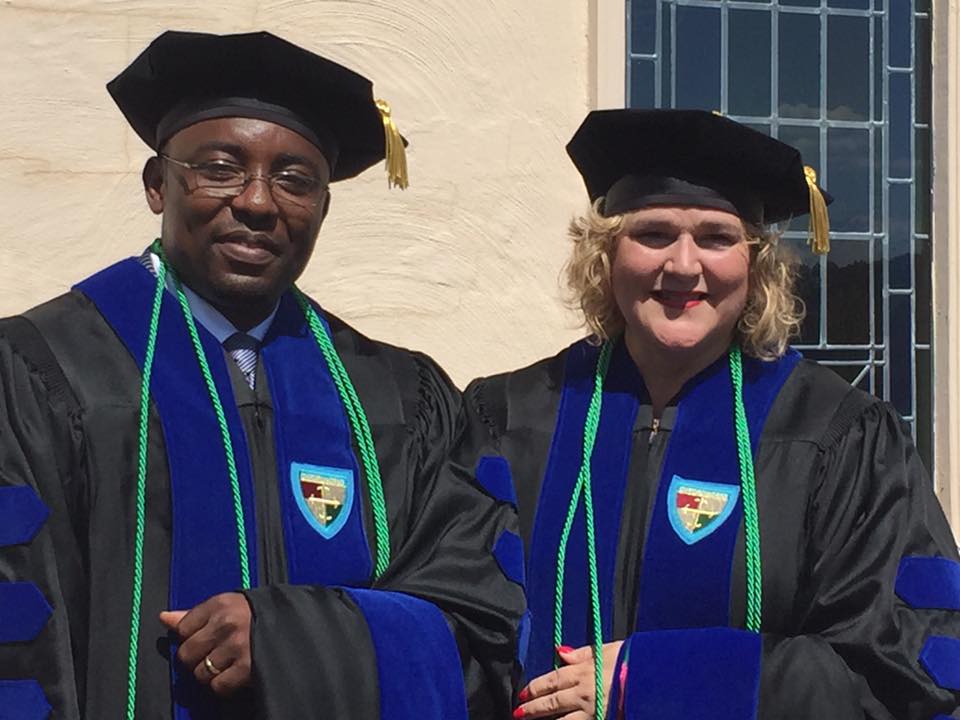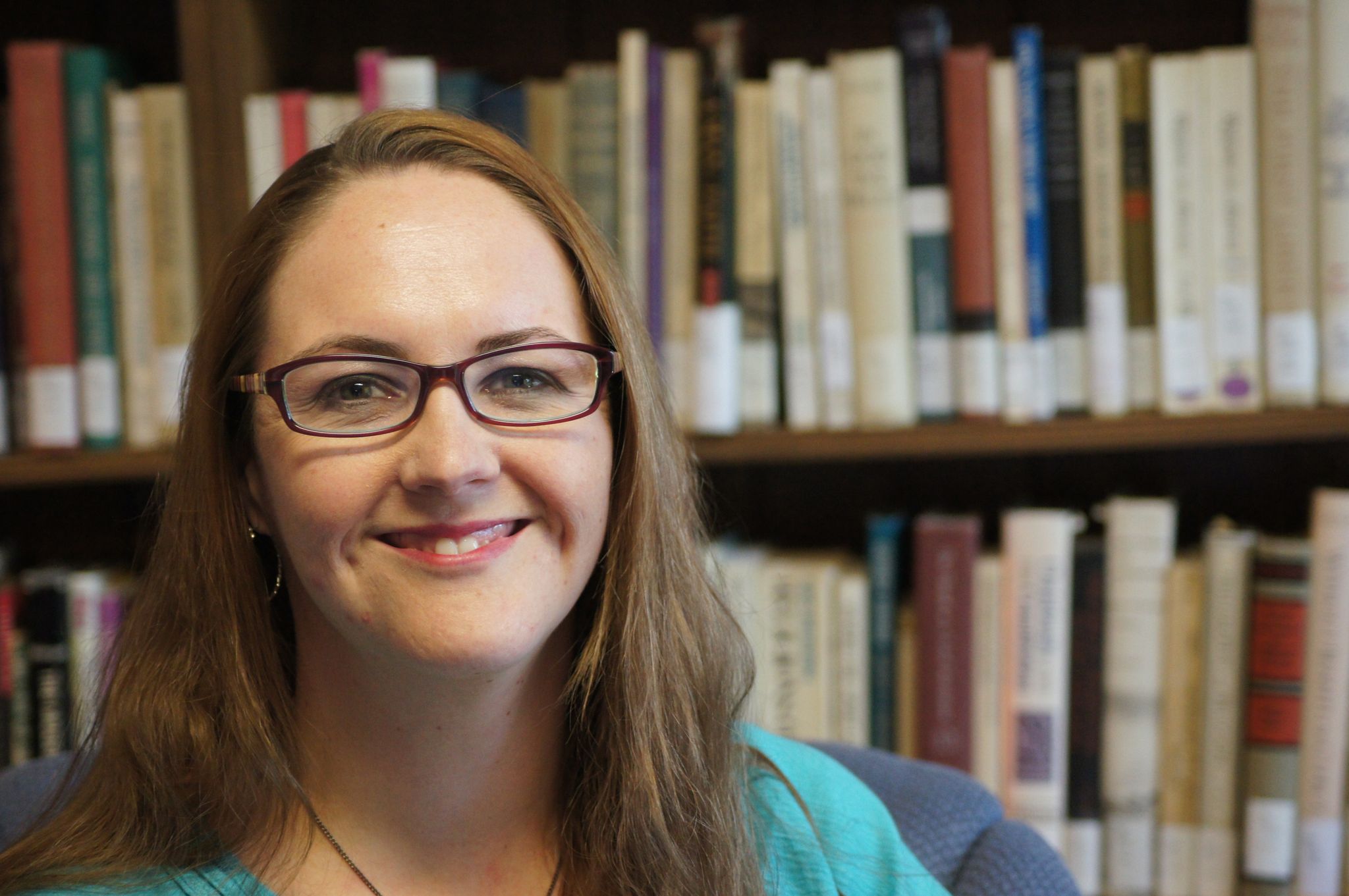Doctor of Philosophy in Social Research
Explore Our Unique Doctoral Degree Program Focused on Helping Professionals Change the World through Social Research
Gain the knowledge and confidence to lead, publish, and change the world at Omega Graduate School (OGS). The OGS Doctor of Philosophy in Social Research enables students to enhance their profession through academic research of a social problem to advance constructive social change.
Our Doctor of Philosophy Degree Program Is
- Affordable
- Interdisciplinary
- Flexible
- Faith-Integrated

Omega Graduate School’s Doctor of Philosophy Degree Program is not just about earning a degree, it’s an experience that empowers leaders to change the world through social research.

Social Research and Constructive Social Change
- The major of our PhD/DPhil degree is Social Research.
- The minors are in Leadership, Philosophy, and Communications.
- Dissertation research is focused in an area of professional interest.
- Flexibility to drive studies toward personal and professional goals.
Earn a Doctor of Philosophy and Change the World
The doctoral program is designed with the goal of constructive social change. The program consists of courses in five structured, short-term residency-based cores and a dissertation phase.
Because the degree is interdisciplinary, students can focus research on a social problem in an area of professional interest.
Social Research Provides Legitimacy and Authority to Lead Social Change in Communities, Organizations, Churches, and Families Worldwide.
Our Doctor of Philosophy is Not Just a Degree Program,
It’s a Life-Changing Experience.
More than a Degree: An Empowering Experience
As a result of academic study, students develop and exhibit the following skills and outcomes:
- Evidence of understanding research methodology
- Proficiency in research statistics
- Ability to gather evidence and synthesize findings
- Mastery of literature related to dissertation area
- Competency in critical inquiry of unsolved or unresolved social problems
- Clarity of English in both speech and written communication
PhD/DPhil Program Requirements
- 72 semester hours
- Five core sessions including multiple interfaces with professors
- European reading and research trip – an annual tradition since 1981 (hosted bi-annually)
- Library of Congress reading and research trip
- Doctoral dissertation
- Completion time: 4-6 years
The PhD/DPhil degree program is designed to be productive, rewarding, and fit working adults’ unique needs. The faculty and staff are dedicated to supporting students in balancing their work, family, and academic commitments. The Doctor of Philosophy in Social Research is designed to advance constructive social change through research.
What does “DPhil” mean?
Our doctoral program uses PhD or DPhil interchangeably. Our doctoral program is a “Doctor of Philosophy”. As part of our tradition, we use the traditional British nomenclature, “DPhil”, to affirm our European tutorial model and our commitment to research. This nomenclature is a matter of preference. A Doctor of Philosophy is a Doctor of Philosophy, regardless of the abbreviation.
PhD/DPhil Degree Requirements
The PhD/DPhil program consists of 72 credit hours of the following courses offered in five week-long intensive residencies called “Core” sessions with online tutorial-style instruction with four consistent assignments per course per term.
Doctor of Philosophy Program Outline
- Orientation Workshop (Core 1)
- Short Term Residences (Cores 2-5)
- Dissertation Phase (typically spanning a period of 2-3 years) including:
- Developing Proposal
- Defending Proposal
- Conducting the Research
- Writing the dissertation
- Degree validation
- Graduate Colloquy
Four Levels of the PhD/DPhil Degree Process
There are four levels in the PhD/DPhil degree process: (a) Admission to graduate studies, (b) matriculation for a degree program, (c) candidacy for a degree, and (d) degree validation. The Academic Affairs Council supervises the process from admission to candidacy; the Graduate Research Council supervises the process from candidacy to graduation.
A student is matriculated to the Doctor of Philosophy program after foundational studies are assessed, and any deficiencies are removed. Students must matriculate for the PhD/DPhil to participate in Cores 3, 4, 5 and 6. The following requirements must be fulfilled for matriculation to doctoral studies: (a) A total of 32 graduate semester hours at the master’s level including 30 cohesive hours in support of the OGS course of study. (b) Attendance at the Program Orientation Workshop which is Core 1. (c) Completion of assignments related to Program Orientation Workshop and Core 2. (d) Possession of basic computer skills, unless exempted by the American Disabilities Act. (e) Control of an E-mail address or regular access to a fax machine.
Once matriculation is attained in the PhD/DPhil program, a student remains at the matriculation level until the completion of all course requirements. When all requirements are completed, the Academic Affairs Council advances the student to candidacy.
Candidates for the PhD/DPhil must achieve degree validation to participate in Core 7. Core sessions are offered during three academic terms. Normally, students will divide their participation into one core session per term until all sessions are completed in sequence. Students must complete all course work connected with the previous core before attending a successive core. Core 7 participation is part of the Graduate Colloquy.
The PhD/DPhil program is divided into two parts: the course of study and the dissertation process. The course of study has three stages: first third (Cores 1, 2); middle third (Cores 3, 4); and upper third (Cores 5, 6). The dissertation process (Core 7) has four stages: proposal development under the Graduate Research Council, the proposal defense, the writing and defense of the dissertation under the Graduate Research Council, and the degree validation stage that verifies the error-free copy of the dissertation and authorizes the candidate’s degree. The dissertation stage is divided into 20 steps with advisors, readers, and faculty supervision at each step.
An extensive course syllabus with bibliography is provided for each course. Tutorial guidance generally includes an overview of the subject and an introduction to the sources of knowledge in the field. It is presented in a lecture with informed participation by the students. Specific developmental and research assignments under the guidance of the faculty follow tutorial guidance. Faculty-directed research in prescribed sources and available resources constitutes an essential part of the course of study. The educational goal is to excite and direct the self-activity of learners who are engaged in personal research and study.
First Third Course of Study (Cores 1 and 2)
The first third begins with the Program Orientation Workshop (Core 1) and introduces the program, explains the curriculum, orients the applicant to the academic performance expectation, assesses strengths and weaknesses, and generally assists the applicant in determining suitability of the program for meeting his or her educational needs. An applicant becomes admitted after the Program Orientation Workshop (POW) when all admissions assessments are made and the student signs a financial contract.
| Core 1 | Course | SH |
| PHI 800-12 | Transformative Learning and Adult Education | 2 |
| LDR 807-12 | Transforming Self-Concept for Leader Development | 2 |
| COM 803-12 | Hermeneutics and Communication | 2 |
| SR 953-12 | Research for 21st Century Scholarship | 2 |
| Core 2 | Course | |
| PHI 815-22 | History of Integration of Religion & Society | 2 |
| PHI 805-22 | Faith Learning Integration and Interdisciplinary Studies | 2 |
| COM 822-22 | Persuasive Communication | 2 |
| SR 968-22 | Sociological Methodology: Interpreting Changing Cultures | 2 |
Semester Credits Pre-Matriculation 16
The curriculum requires advanced preparation for each stage in the course of study so the student can be an informed participant in class. Each stage has advanced assignments required for participation in residency core sessions and post-class assignments to be completed after core sessions.
Middle Third Course of Study (Cores 3 and 4)
The middle third of the program requires assessment for matriculation, which denotes eligibility to continue toward a degree. Core 3 is considered a matriculation workshop. Once attained, a student remains at the matriculation level until completion of the course of study requirements and qualifying interviews.
| Core 3 | Course | SH |
| COM 968-32 | Statistics for Social Research | 2 |
| SR 958-32 | Research Design and Methodology | 2 |
| PHI 923-32 | Contextualization for Social Change | 2 |
| PHI 943-32 | Orthodoxy and Orthopraxis | 2 |
| Core 4 | Course | SH |
| COM 968-42 | Statistics for Social Research | 2 |
| SR 958-42 | Research Design and Methodology | 2 |
| LDR 810-42 | Cross Cultural Dynamics | 2 |
| LDR 813-42 | Organizational Dynamics | 2 |
Semester Credits Middle Third 16
The following requirements are fulfilled before a student is matriculated:
- Adequate completion of the Program Orientation Workshop and the academic assignments related to Cores 1 and 2.
- Completion of a master’s degree with (30) cohesive graduate hours in support of the OGS Program of Study.
- Demonstration of certain basic professional academic skills unless exempted by the American Disabilities Act and so documented. Basic skills include a standard computer program’s word processing, editing, and printing functions.
- A personal e-mail address or access to a Fax machine.
The Reading and Research Seminars offered in UK are part of the required seminars for the PhD/DPhil. A student whose health or handicap prevents travel to England may complete alternate sessions on campus in Tennessee.
The PhD/DPhil program requires a trip to the Library of Congress in Washington, DC. The Library of Congress experience and the Bodleian trip serve as opportunities to develop research skills for lifelong scholarship.
Upper Third Course of Study (Cores 5 and 7)
| Core 5 | Course | SH |
| COM 968-62 | Statistics for Social Research | 2 |
| SR 958-62 | Research Design and Methodology | 2 |
| SR 852-62 | Prospectus | 2 |
| PHI 812-63 | Morality, Law, and Ethics in Global Society | 2 |
| Core 6 | Pre-Candidacy Requirements | |
| SR 848-64 | Library of Congress Reading and Research | 4 |
| COM 946-64 | Art, Culture, and Society | 4 |
| PHI 834-64 | Teaching Practicum | |
| SR 823-64 | Research in an Alternative Field | |
| Core 7: Diss A | Course | |
| SR 812-76 | Research Proposal | 8 |
| Core 7: Diss B | ||
| SR 912-78 | Dissertation Writing Publication | 8 |
| Core 7: Diss C | ||
| SR 966-74 | Dissertation Faculty Defense; Error-free Dissertation | 8 |
Candidacy
Candidacy means that a student has completed all course work. A student must:
- Demonstrate ability to use the English language with clarity in both speech and writing.
- Evidence specialized competence in general research methodology.
- Manifest proficiency in statistics for completion of a dissertation.
- Complete all core requirements.
- Complete a qualifying interview.
- Demonstrate competency to gather data and synthesize findings that lead to new knowledge about a significant problem or issues in a field of knowledge.
- Demonstrate subject matter mastery of literature related to a dissertation area.
- Demonstrate competency in critical inquiry of unsolved or unresolved problems.
During candidacy, the Graduate Research Council supervises the student for a major research project and dissertation. The Graduate Research Council guides a candidate in developing a research proposal. When the proposal is satisfactorily defended, the student is authorized to gather and analyze data and write a dissertation.
